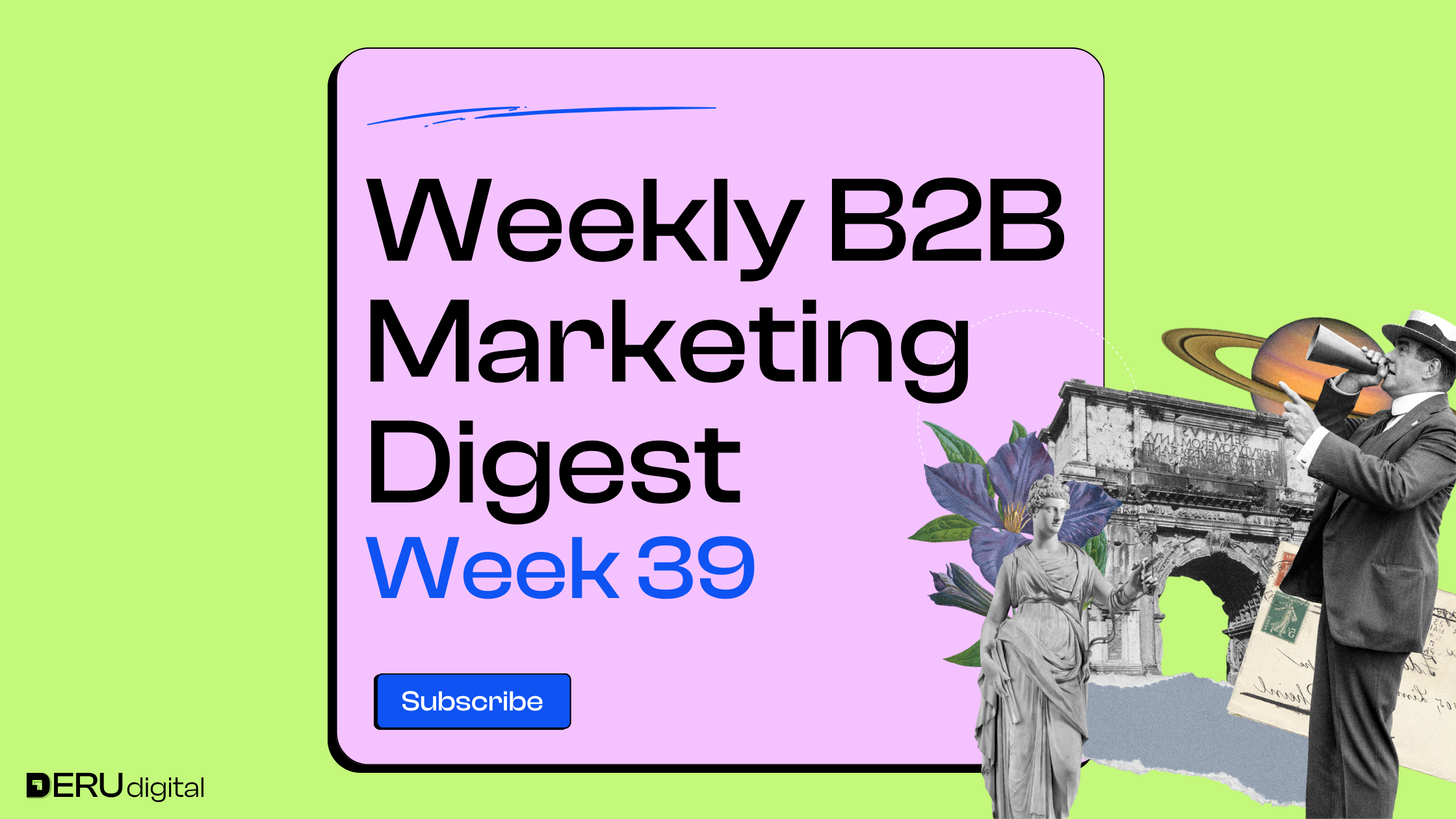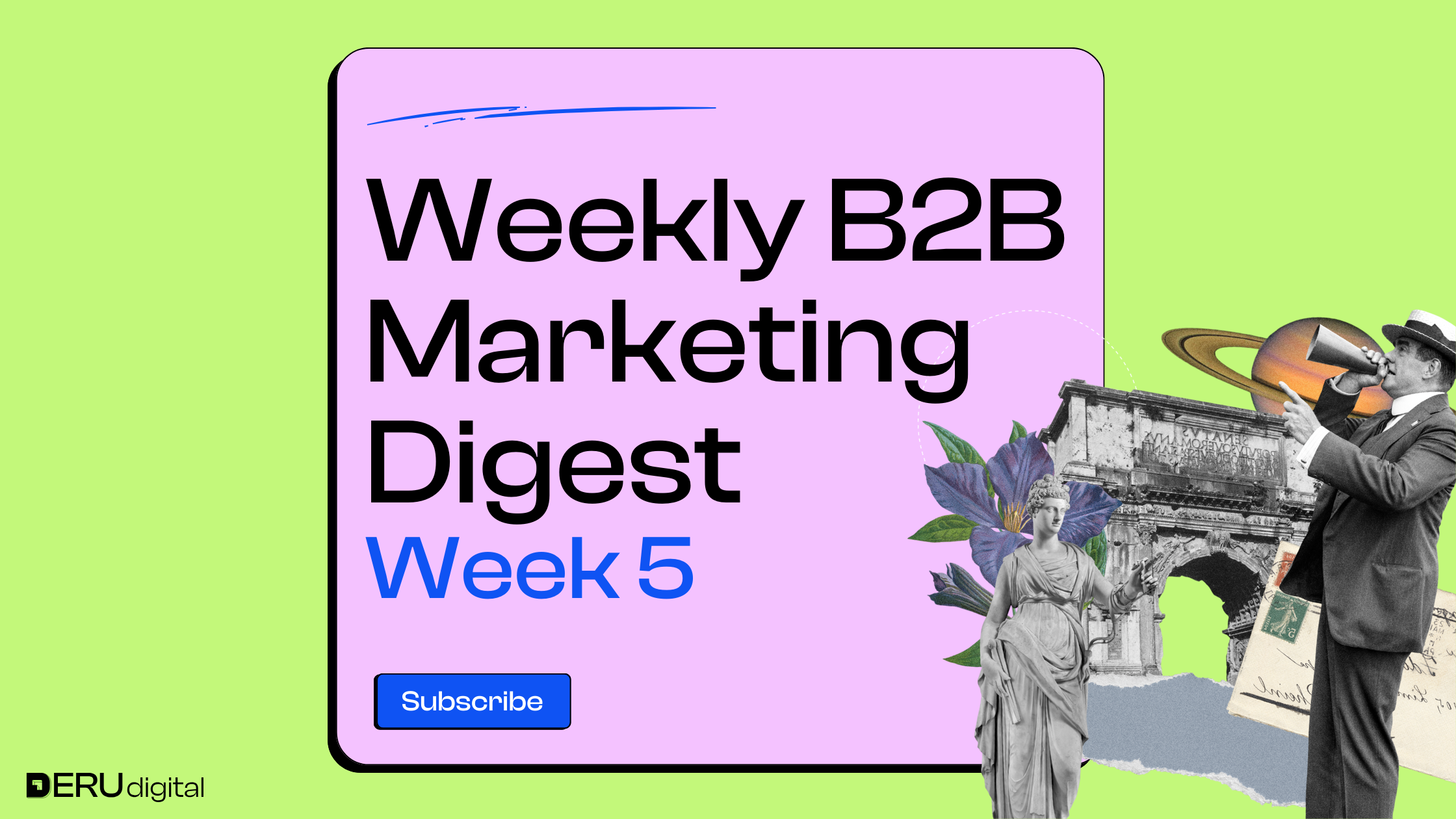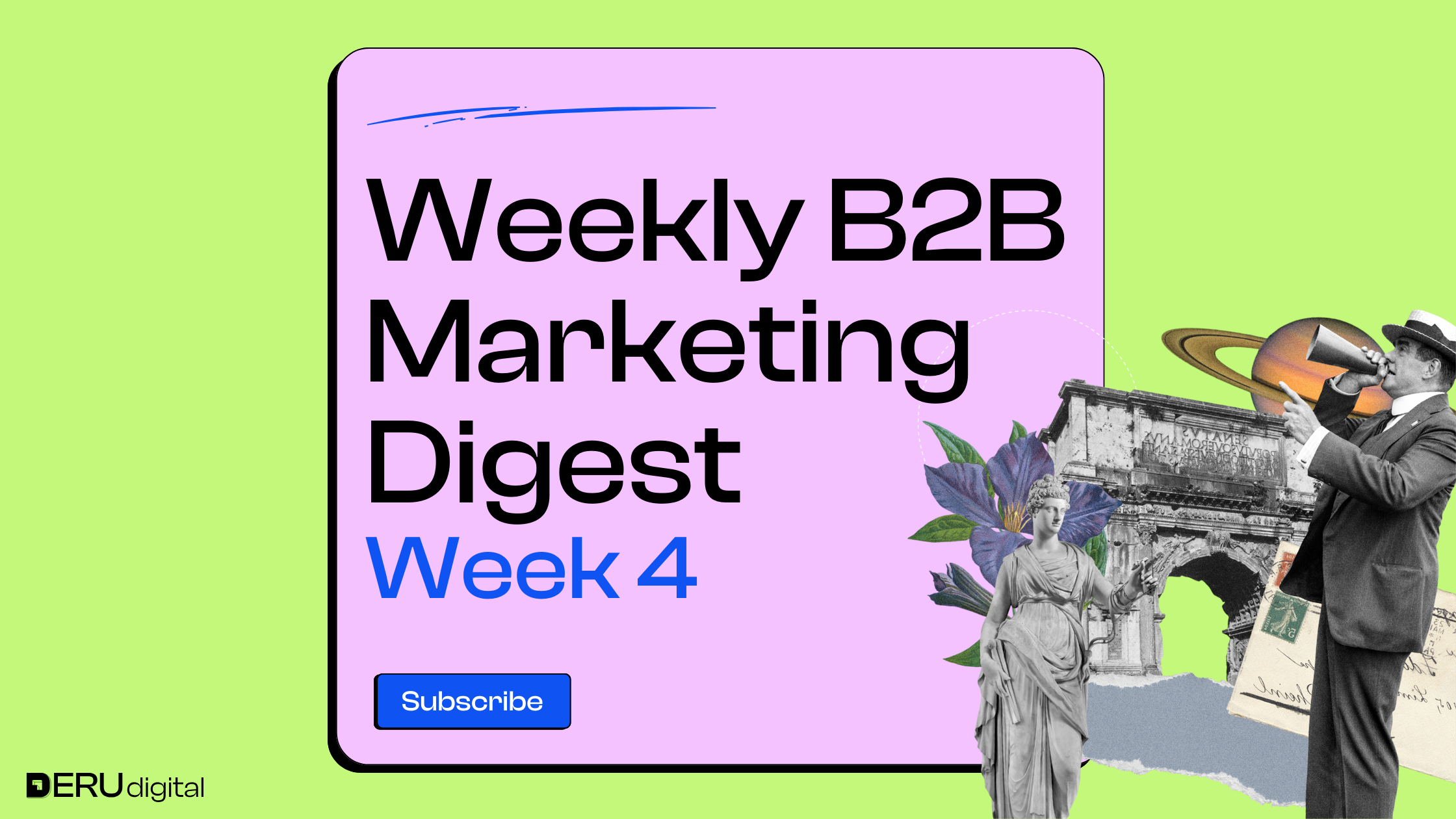INSIGHTS FROM EXPERTS ON LINKEDIN
Laura Erdem highlights new B2B benchmarks showing non-branded Google Search CPCs up 29% while clicks are down 26% year over year. She notes AI is reshaping ad performance but says marketers can still control results by reallocating budgets, improving Quality Scores, refreshing creative, tightening keyword targeting, and using ad extensions. The full report dives deeper into these trends.

Jonathan Spier points out that big salestech names like 6Sense, Outreach, and Clari are losing momentum as IPO hopes fade. He traces the decline to tool overload, an overused sales playbook, and shrinking competitive moats as AI makes software cheaper to build. His advice: companies can still win by focusing tightly on where they add real value and targeting with precision.
Brian Ryu announces the launch of Incendium AI’s Effectiveness-Based Attribution (EBA), a new model built to overcome the limits of traditional analytics. Unlike first- or last-click models, EBA attributes value to the activities that actually drive outcomes, aiming for more transparency and accuracy. He calls it a milestone for marketers seeking clearer, more reliable insights from their data.
Adriaan Dekker introduced a new script that helps advertisers track how their Performance Max budgets shift across channels like Display, Video, Shopping, and Search. It compares 7-day averages against a 30-day baseline and sends automated alerts when unusual changes happen. The tool gives marketers more control, helping them catch channel shifts before they hurt performance.

Eve Thorsen announced Dreamdata’s integration with LinkedIn’s new Company Intelligence API, giving B2B marketers better visibility into how LinkedIn drives pipeline and revenue. Marketers can now track company-level engagement, uncover new accounts showing interest, and build highly targeted retargeting audiences. Early tests show big lifts in MQLs, SQLs, and lower CPAs, making LinkedIn spend easier to justify.

WHAT'S NEW IN THE INDUSTRY
Google Ads documentation still says negative keyword lists max out at 5,000, but some advertisers are adding more without issue. It’s unclear if this is a glitch or a quiet policy change, though Google confirmed the cap is technically still 5,000. Until clarified, advertisers should assume the published limit stands.

Google is rolling out a beta feature that lets app marketers adjust Smart Bidding for short-term events like flash sales. This helps campaigns capture more conversions during predictable spikes instead of relying on reactive learning. It’s designed for intense windows of 1–7 days, not smaller fluctuations.

LinkedIn’s new Company Intelligence API connects ad engagement to pipeline and revenue outcomes, giving B2B marketers clearer proof of ROI. Early testers saw big gains in engaged companies, qualified leads, and lower acquisition costs. The tool works through LinkedIn’s analytics partners, pulling campaign data into CRM dashboards for better visibility.
Google is turning Demand Gen into a full-funnel performance tool, with YouTube at the center. Advertisers now get features like target CPC bidding, channel controls, product feeds, and app support, helping Demand Gen compete directly with social ad platforms. Early results show stronger conversion lifts, making YouTube more of a decision-driving channel than just discovery.
Merchants frustrated with the old process for setting up local inventory feeds now have a clearer path. Google confirmed that API keys can be requested through a simple form and issued once validated, streamlining onboarding. This should make it easier for retailers to bring store availability data into Shopping campaigns.
Facebook and Instagram users in the UK will soon be able to pay a monthly fee to browse without ads – £2.99 on web or £3.99 on mobile for one account. The move, driven by UK regulators, could shrink ad inventory and impact targeting as some users opt out of ads entirely. Advertisers will need to rethink strategies as budgets and reach may shift.
That’s the scoop for this week! If you found this valuable and any useful insights caught your eye, feel free to share them with your network.
Until next week!



